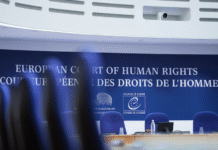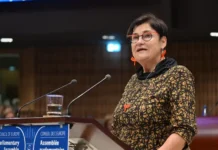The European Court of Human Rights (ECtHR) is in danger of legitimizing Turkey’s authoritarian turn by leaning too heavily on subsidiarity, a legal doctrine that tells the Strasbourg judges to defer to national authorities if those authorities appear to apply the court’s standards, according to a new academic study, Turkish Minute reported.
Published in the latest issue of European Human Rights Law Review in October, the article by French legal scholar Thomas Hochmann warns that the ECtHR’s new process-based approach is being instrumentalized by authoritarian governments, especially Turkey, to create the appearance of compliance while continuing political repression.
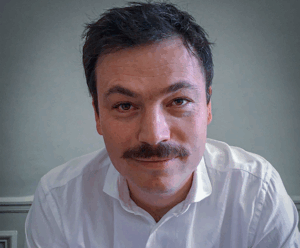
Hochmann’s study, titled “Judge Yüksel’s Way: Bad-Faith Regimes and the Dangers of Subsidiarity,” focuses on the opinions of Saadet Yüksel, a judge at the ECtHR appointed upon Turkey’s recommendation and serving in her position since 2019. Hochmann argues that Yüksel’s reasoning repeatedly recasts serious human rights violations as minor procedural flaws and urges Strasbourg to defer to Turkish courts even when the broader context shows bad faith by the state.
The ECtHR’s principle of subsidiarity holds that national courts should bear the main responsibility for protecting human rights, with the Strasbourg court intervening only when domestic remedies fail. In 2021 this principle was formally written into the preamble of the European Convention on Human Rights (ECHR) through Protocol No. 15, partly to respond to member states’ political backlash and to help manage the court’s heavy caseload.
According to Hochmann, when a government acts in bad faith, using the appearance of legality to pursue political goals, the ECtHR’s deference to local courts can become a free pass for repression. The paper describes this pattern as “autocratic legalism,” citing Turkey as the leading example.
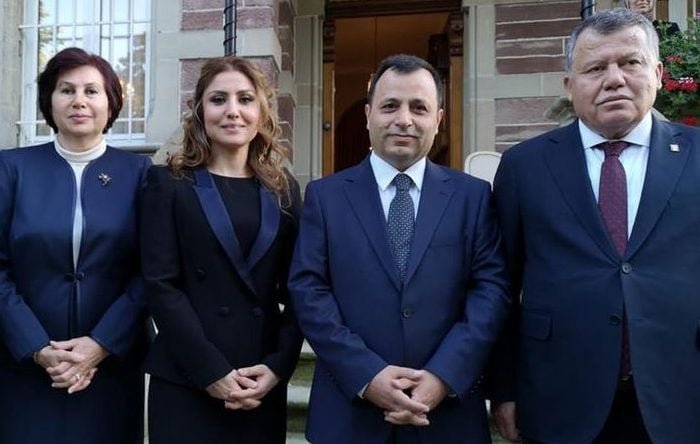
The study’s focus: Judge Saadet Yüksel
The article closely examines 33 separate opinions issued by Judge Yüksel since 2019, nearly all in cases brought against Turkey. Hochmann says the collection does not show a blanket defense of the Turkish government but reveals a consistent method that narrows Strasbourg’s oversight role and reduces the court’s capacity to enforce human rights judgments.
Yüksel frequently agrees that a violation occurred but describes it as “merely procedural,” arguing that Turkish judges failed to provide adequate reasoning rather than having acted unlawfully. She often implies that the same outcome could stand if better explained in a future judgment.
Framing rights violations as defects of reasoning
In several free-speech cases, including those of Nejdet Atalay and Mehdi Tanrıkulu, a Kurdish politician and a publisher convicted for speeches seen as supporting outlawed groups, the court applied a process-based review and found violations not because the courts violated the rights of the applicants knowingly but by merely not having considered the court’s case law.
In both cases Yüksel took the opportunity to underline that the ECtHR’s decision condemning Ankara was insufficient reasoning by Turkish courts rather than a deliberate violation of freedom of expression, meaning that with similar facts and the same outcome, had the Turkish court produced a better reasoning for its decision by properly citing the ECtHR’s case law, the ECtHR would not be just in finding a violation.
Another way Yüksel’s opinions invite the ECtHR to defer to the Turkish judiciary is when she cautions the court about reading too much into the context.
An example of this was cited in the paper as the case of Kemal Kılıçdaroğlu, the former leader of Turkey’s main opposition Republican People’s Party (CHP), who was ordered by domestic courts to pay damages for allegedly insulting then-prime minister Recep Tayyip Erdoğan. The ECtHR majority found that the conviction violated the ECHR’s protection of political speech under Article 10, emphasizing that political leaders must tolerate strong criticism. Yüksel, however, argued that politicians must avoid caustic commentary targeting their opponents, ignoring the context of Kılıçdaroğlu’s position as main opposition leader.
Because she insists most violations are procedural due to the ECtHR’s own admission, Yüksel often opposes the payment of damages or calls for symbolic compensation only. She argues that a mere declaration of a violation or a chance for retrial in Turkey should suffice as justice.
Hochmann notes that Turkey’s Constitutional Court sometimes later recognizes such violations and awards small sums, after which Yüksel cites that domestic acknowledgment to argue that the applicant is no longer a “victim,” urging Strasbourg to close the case.
The study lists examples involving opposition leader Selahattin Demirtaş, journalist Murat Aksoy and reporter Deniz Yücel. The ECtHR’s majority opinions tends to align with Yüksel’s reasoning when it comes to deference to Turkey’s top court.
The ByLock cases and Turkey’s post-coup detentions
One of the most important lines of cases concerns the Turkish authorities’ treatment of ByLock, an encrypted messaging app Turkey claims to have been used by members of faith-based Gülen movement, the use of which Turkish courts see as sufficient grounds for terrorism convictions.
Turkish President Recep Tayyip Erdoğan has been targeting followers of the Gülen movement, inspired by the late Muslim cleric Fethullah Gülen, since corruption investigations in December 2013 implicated him as well as some members of his family and inner circle.
Dismissing the investigations as a Gülenist coup and a conspiracy against his government, Erdoğan began to target the movement’s members. He designated the movement as a terrorist organization in May 2016 and intensified the crackdown on it following the abortive putsch in July of the same year that he accused Gülen of masterminding.
Tens of thousands of civil servants, teachers and military personnel were arrested or fired for alleged ByLock use.
The ECtHR’s Grand Chamber has ruled that mere possession or use of the app cannot, by itself, justify criminal charges or detention under Article 7 of the convention, which forbids punishment without a clear legal basis.
Yüksel dissented, defending Turkey’s approach and arguing that national courts were better positioned to assess the evidence. She cited the extraordinary circumstances of the coup attempt, the novelty of digital evidence and the courts’ “experience with coups” as reasons for Strasbourg to defer to Turkish judges. Hochmann says this logic treats emergency conditions as permanent justification to limit rights.
The study also highlights Yüksel’s resistance to findings under Article 18, which forbids using legal processes for ulterior political aims. In the case of Osman Kavala, a philanthropist and civil society figure jailed since 2017, Strasbourg found that Turkey had misused the legal system to silence him. Yüksel dissented, insisting there was no proof of political intent.
Hochmann argues that such formalism helps the Turkish state avoid official findings of bad faith, effectively erasing motive from judicial scrutiny.
The article also details a Turkish practice that undermines ECtHR enforcement. When the ECtHR orders an arrestee’s release, Turkish prosecutors file new charges based on the same facts to keep the person in jail. Strasbourg has ruled that such relabeling cannot defeat its judgments, yet Yüksel’s dissents treat each re-detention as legally distinct.
This, Hochmann writes, blunts enforcement under Article 46, the obligation to execute ECtHR rulings, by allowing governments to reset the clock indefinitely.
The ECtHR’s ‘procedural turn’
Hochmann places these developments within what he calls the ECtHR’s “procedural turn.” Facing political attacks and a massive backlog, the court has tried to protect its legitimacy and sustainability by focusing on whether national judges cite and appear to apply Strasbourg’s principles rather than re-examining the substance of every case.
This approach, combined with the margin of appreciation (the leeway given to states in balancing rights), assumes that member states act in good faith. But, Hochmann argues, illiberal regimes weaponize the court’s own language of compliance, claiming they applied Strasbourg’s standards while hollowing them out in practice.
Hochmann ends his paper with a warning built around a real event involving the head of the ECtHR.
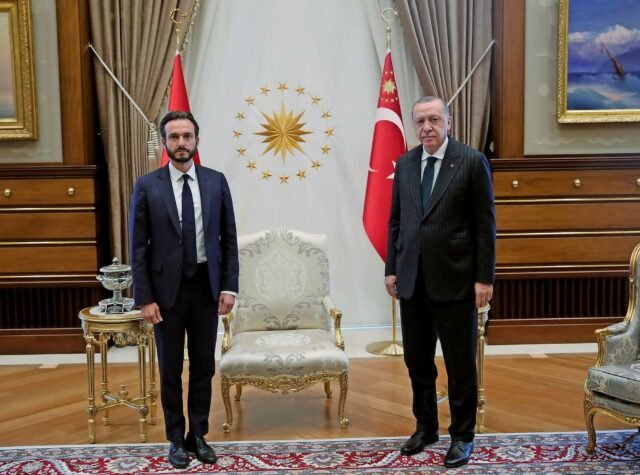
In 2020 then-ECtHR president Robert Spano visited Turkey at the invitation of Judge Yüksel. During the trip, he accepted an honorary doctorate from İstanbul University, which had dismissed hundreds of academics after the 2016 coup attempt, and met with public officials linked to the government’s ongoing political repression.
The visit drew strong criticism from human rights groups, who said it looked like the ECtHR was endorsing an authoritarian regime.
Hochmann says this was a form of “judicial diplomacy” that ignored reality and damaged the ECtHR’s credibility. He closes by warning that the same danger exists in the ECtHR’s judgments when it treats appearances of legality as proof of justice, ending up reinforcing the systems it was created to restrain.
The European Court of Human Rights, based in Strasbourg, was established in 1959 under the Council of Europe, an international organization separate from the European Union. It hears complaints from individuals in 46 member states who claim their governments violated the rights set out in the European Convention on Human Rights.
Its rulings are legally binding, but enforcement depends on political pressure from the council’s Committee of Ministers. Turkey has been a member since 1950 and remains one of the worst offenders in the court’s history.
Despite ECtHR judgments calling for the release of prominent detainees such as Osman Kavala and Selahattin Demirtaş as well as a judgment in the case of teacher Yüksel Yalçınkaya that concerns the rights violations in tens of thousands of Gülen-linked cases, the Turkish government has refused to comply, attracting criticism that the Council of Europe’s enforcement mechanisms have lost credibility.





